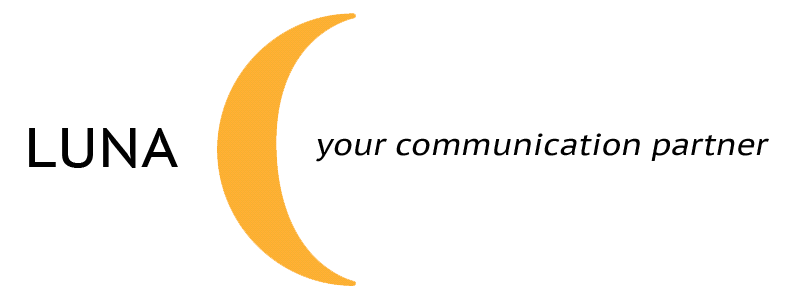5 benefits of bilingualism in the workplace in Belgium
We don’t have to tell you that multilingualism is a huge asset in Belgium. Did you know that language skills are not only useful in your private life, but also have numerous advantages during working hours? In this blog, we give you no less than 5 advantages of bilingualism in the workplace.
Luna is a communications agency located in Hoeilaart (near Brussels, Belgium) with an (almost) equal number of French and Dutch-speaking colleagues. So every day we come into contact with at least two languages. This is also often the case with our clients. As a communication consultant, it is therefore important to be able to switch language flexibly. In this blog, we delve deeper into the positive elements of a multilingual approach in professional life.
- Reflection of society
For us Belgians, bilingualism or multilingualism is something “normal”. We were born in a country with three national languages: French, German and Dutch, and thus we adapt easily to any language situation.
This is also the case at the Luna offices. During our weekly team meeting, the French-speaking colleagues speak French, while the Dutch-speaking colleagues ask f.i. questions in Dutch. Everyone uses their own mother tongue in our company and that works out quite well. When someone has not grasped something, we switch to the other language to make it understandable for everyone.
- Increased well-being and better productivity
Language is part of one’s culture and therefore part of a person’s identity. Allowing employees to speak their own language shows that you appreciate them as who they are. That benefits their well-being. Moreover, happy employees are more productive and work better. So it’s a win-win situation!
- Language skills continue to be maintained
Bilingualism in the workplace keeps your knowledge of the other language up to date. You can speak a language other than your mother tongue every day which enhances your vocabulary and grammar. In addition, you can turn to your colleagues for all your language questions. Google who?
- Serve customers in their own language
Just as we allow our colleagues to use their native language as much as possible, we do the same with our clients. All of our clients speak their native language during live calls or Teams calls. Explaining nuances in another language is more difficult so that’s why we prefer this approach. In some cases, we invite a colleague with the same native language as the client to join the call or we record the call to listen to it again afterwards and be sure not to miss any nuances.
There is also an added benefit for clients who wish to communicate in multiple languages. Instead of having to look for multiple agencies, they can contact us directly for communications in French, English and Dutch. For other languages (Italian, Spanish, etc.), we work with native speakers who work for us on a freelance basis. Something for everyone!
- Press releases tailored for the journalist
We also offer added value for journalists with our bilingual approach. The journalist always receives our invitations, press releases and news in the language in which he writes (Dutch or French). So (s)he can start working with them immediately.
In addition, for some of our clients – if relevant – we make multiple versions of a press release to emphasize local aspects. In this way we hope to convince the journalist of the importance of the news for his region and aim for a larger coverage.
Need a bilingual communications agency for your press relations or copywriting needs? Let’s talk!



